When two individuals get married, they become partners. And each partner, as the name suggests, holds equal accountability for everything they collectively experience. They are equally responsible for managing the household and raising kids. When Caleb Remington (@ustheremingtons) was going to have his second baby with his wife Tiffany through IVF, he was determined not to repeat the mistake he made when he had his first one. He posted a TikTok video showing that when his second baby was born, he took a 7-week paternity leave, and the results significantly changed his perspective on domestic duties, parenting, and relationships. “#Dadtok coming hot,” he said.
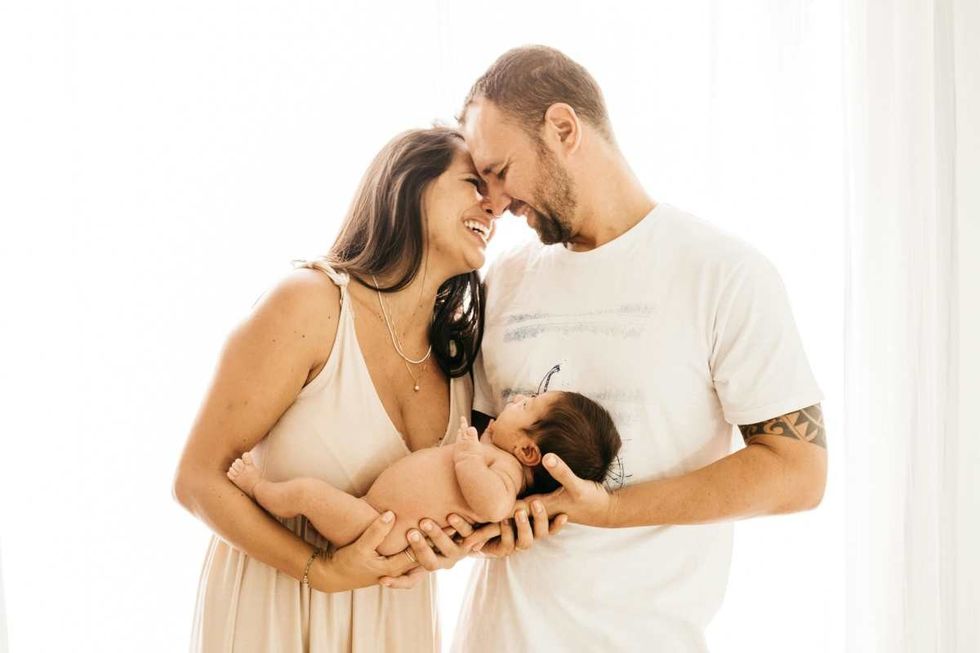
Caleb began the video by admitting how guilty he felt for not taking paternity leave when his first child was born. “With our first [baby], I didn’t have a single day of paternity leave. This time around, they gave me four weeks, and I took an extra three weeks of PTO. Part of me feels guilty that I didn’t do that with our first.” He emphasized how important it is for fathers to be present with their kids.
Studies have also shown that fathers who take paternity leave foster healthier relationships with their children than those who don’t. Plus, men who take paternity leave are likely to cultivate better relationships with their partners than those who don’t. “Being present with the kids and literally finding ourselves lost in time, watching ants cross the sidewalk, made me realize how many of those small moments I missed out on the first. But I am grateful that I had some time to make it up,” he said.
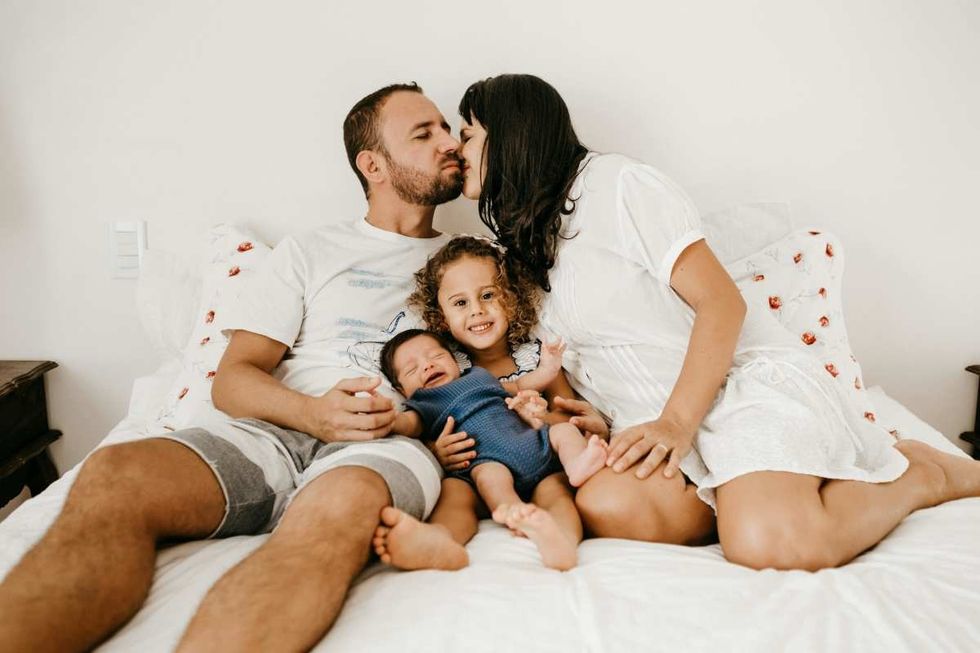
He said that the lady with the milk bags was seemingly so stressed by how messy their house was. So, he decided to take on more of those “domestic responsibilities” because this was where he had failed the first time. He also admitted that although his wife is usually the “man of the house,” this 7-week paternity leave taught him how to wrangle with the household duties.
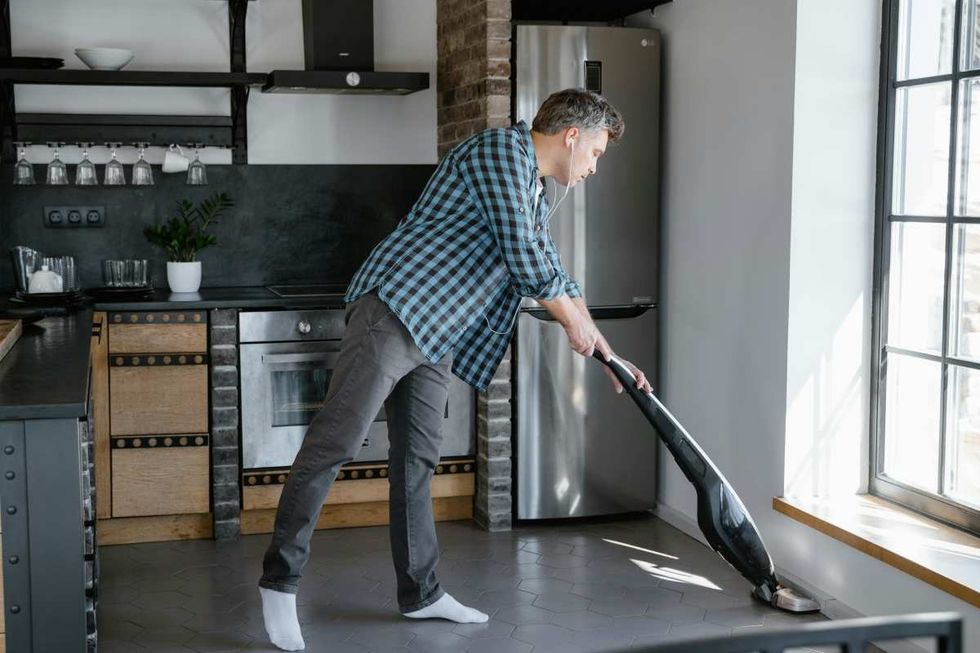
“110% of that is because of my wife. What you see in this video is actually what I do on a daily or weekly basis.” In the video, he is seen inside the house, wearing pajamas and doing everyday tasks like cleaning, mopping, sweeping, vacuuming, dusting, taking out the trash, folding clothes, cooking, washing dishes, and putting his toddler down for a nap,
Caleb admitted that previously he thought was doing his “fair share” of duties, but this time he realized that his role had been just the “bare minimum.” He said, “It has taken multiple conversations and many ongoing ones to truly master how to take on more of the mental load of raising children, growing our marriage, and taking care of our investments like our home.”
He continued by expressing how tough it was for them, as a couple, to bring children into the world, but despite all odds, they learned to do it right. At that time, they were “naive.” “I honestly hated how much we fought, how much I felt misunderstood, and how much I misunderstood her. We are actually really good communicators, but I felt like any time, anybody expressed something, the other was hurt.”

The dad of two said that this time, they were a little more prepared – “prepared in how we talk to each other, prepared in how I balance my work life and personal life, and prepared to just let things go.” Additionally, he wrote in the caption, “I am dedicated to doing better to help balance more of the domestic responsibilities.”
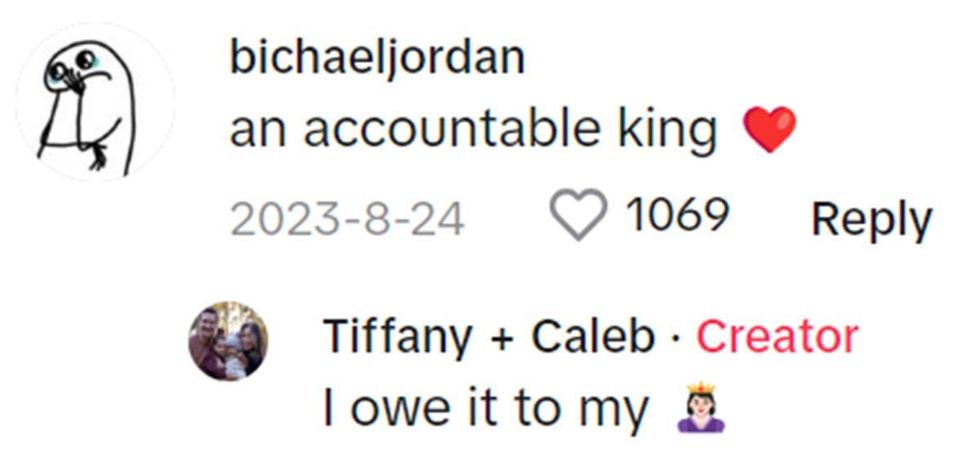
In the comment section, people praised Caleb for choosing to take paternity leave. Many pregnant women expressed that they, too, wished to communicate the same to their husbands. @olivwils said, “I’m pregnant and this video made me cry. Love the accountability, everyone deserves this kind of empathy in their relationship!”

Other users shared how this act of sharing household duties was such a great move for their relationship. @fallforyou7 commented, “You may not know it, but you are saving your marriage. It really is the little things.” @crackhead_central04 added, “This shows how important self-reflection and awareness is and the difference it can make not only for your partner but also your own growth.” @usernamesarehard22 agreed and said, “This warms my heart to see the time and effort put in. So many men take a back seat & it alienates their partner. Accountability is key!”
@ustheremingtons I (caleb) am getting ready to go back into work and i am not ready. Grateful for my four weeks plus 3 weeks of PTO, but i feel like we were just getting into a groove and i was finally getting to have some 1 on 1 time with my son. Picking up the house today because we all function better with a clean space and we haven’t had time to do much of it while surviving these past 7 weeks. I do work from home and find that I have a little more flexibility in helping out here and there but i am also pretty glued and have to be zoned in during work hours. I do however have some pretty awesome and understanding coworkers and company!Shout out to @SAMBAZON Açaí 👊 Tiff is an all star: working and stay at home mom. I am dedicated in doing better to help balance more of the domestic responsibilities. #paternityleave #dadtok #dadsover30 #dadlife #fyp #foryoupage #ditl #ditlvlog #maternityleave #newbornlife #newbornbaby #secondbaby #2under2 #toddlerlife
You can follow Caleb and Tiffany on TikTok and Instagram for more snaps of their parenthood journey.





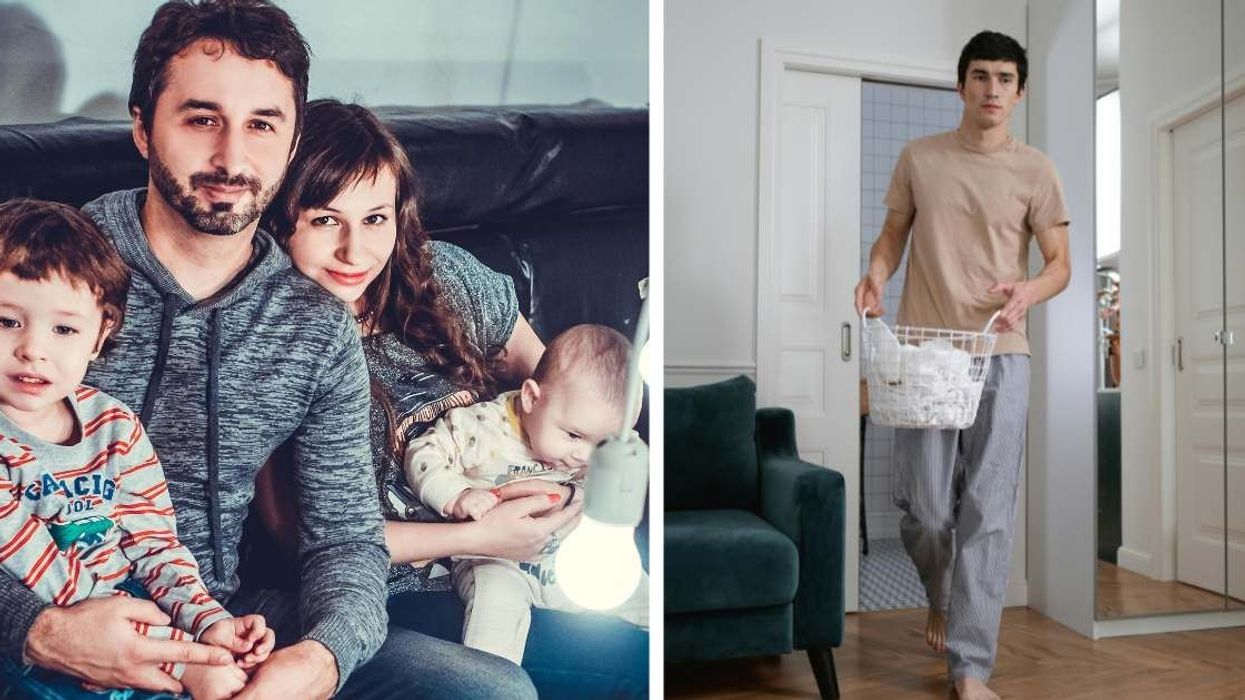
















 What foods would you pick without diet culture telling you what to do?
What foods would you pick without diet culture telling you what to do?  Flexibility can help you adapt to – and enjoy – different food situations.
Flexibility can help you adapt to – and enjoy – different food situations.
 Anxious young woman in the rain.Photo credit
Anxious young woman in the rain.Photo credit  Woman takes notes.Photo credit
Woman takes notes.Photo credit 
 Revenge can feel easier than forgiveness, which often brings sadness or anxiety.
Revenge can feel easier than forgiveness, which often brings sadness or anxiety. 
 In the past two years, two malaria vaccines have become available for babies starting at 5 months of age.
In the past two years, two malaria vaccines have become available for babies starting at 5 months of age. By exploiting vulnerabilities in the malaria parasite’s defense system, researchers hope to develop a treatment that blocks the parasite from entering cells.
By exploiting vulnerabilities in the malaria parasite’s defense system, researchers hope to develop a treatment that blocks the parasite from entering cells. Created with
Created with